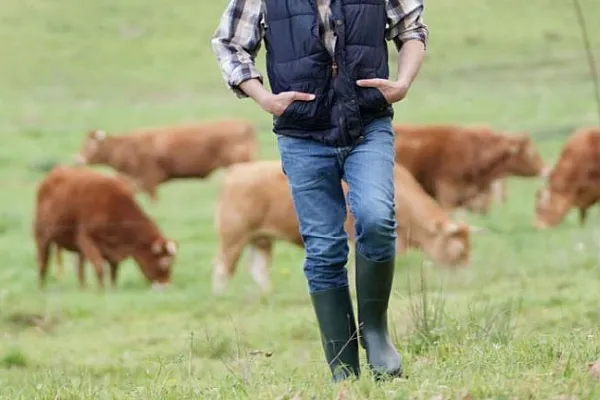
Field, Lab, Earth Podcast
Field, Lab, Earth Podcast
Podcasts are serial audio files that can be freely downloaded directly from the internet or via podcast aggregators like Apple Podcasts, Google Podcasts, Alexa, or Spotify. Field, Lab, Earth is the podcast all about past and present advances in the fields of agronomy, crop, soil, and environmental sciences. Produced by the American Society of Agronomy (ASA), Crop Science Society of America (CSSA), and Soil Science Society of America (SSSA), it features timely research and conversations with our authors and is always freely available.
Listen now

The best way to access our podcast is by subscribing on your favorite podcast aggregating service or app. Once you subscribe, new episodes will be sent directly to your device. There is no cost to subscribe or listen, and you can unsubscribe at any time.
Field, Lab, Earth is available on Podchaser, Apple Podcasts, Spotify, TuneIn (Alexa), YouTube, or anywhere else you listen to podcasts.
Continuing Education Unit (CEU) Quizzes
CEU quizzes are available for all of our regular episodes. If you are a Certified Crop Adviser or Certified Professional Soil Scientist, you can find quizzes for our episodes on certifiedcropadviser.org. Podcast quizzes are also included as part of the Online Classroom Subscription.
Student Spotlight
Field, Lab, Earth features graduate and undergraduate students at the end of each episode. If you would like to be featured, please let us know by filling out this brief application form. Please note you must be a student member with ASA, CSSA, or SSSA to apply.
Recent Episodes
Interested in checking out our show? Some of our most recent episodes are below. To listen to more of our back catalog, please visit our website or search for “Field, Lab, Earth” anywhere you listen to podcasts.
Speed Breeding to Combat Wheat Disease with Drs. Nidhi Rawat and Vijay Tiwari
Fusarium head blight (FHB), also known as head scab, is one of the most significant diseases affecting wheat, causing substantial economic losses for farmers in the U.S. and worldwide. While FHB resistant wheat lines have been identified, breeding these traits into desirable cultivars is a time-consuming process that can take decades, with uncertain success. In the U.S., particularly for spring wheat, crossing of wheat lines can typically be done only once per year due to seasonal limitations, which slow down the process of development of disease-resistant cultivars. To overcome this challenge, speed breeding—an approach that involves growing plants under extended light exposure (20–22 hours per day) to accelerate their life cycle—offers a promising solution. This technique enables multiple generations of wheat to be produced within a single year, allowing for more frequent crossings and a faster transfer of disease resistance traits into desirable cultivars. In this episode, Drs. Nidhi Rawat and Vijay Tiwari share their insights on using speed breeding techniques to accelerate the breeding of disease-resistant cultivars.
Read the featured article now. It is always freely available.
Economics of Autonomous Strip-Cropping with Professor James Lowenberg-DeBoer
With the growing global population, the demand for food continues to rise. However, increasing food production often depends on intensive farming practices and agricultural inputs that can negatively impact environmental health. To counter this, promoting crop diversity, improving soil health, and reducing disease and pest pressure are crucial. Mixed cropping presents a viable solution but poses challenges for mechanization and labor efficiency. In this context, customized autonomous machines and advanced technology can play a key role in facilitating mixed cropping while lowering production costs. In this episode, Dr. James Lowenberg-DeBoer shares insights from his research on the economics of strip cropping—the simplest form of mixed cropping—using autonomous machines. He explores the feasibility and profitability of this approach, along with the challenges and opportunities in restoring crop biodiversity and ecosystem services, ultimately fostering better environmental health and sustainable agriculture.
Read the featured article now. It is always freely available.
Benefits of Microarthropods with Dr. Ashley Jernigan
Microarthropods are little critters that can have a big impact on crop production, particularly when it comes to nutrient cycling and nutrient acquisition. However, there’s still much to learn about how the work these little helpers do is affected when paired with different types of fertilizers. In this episode, Dr. Jernigan joins me to discuss how microarthropods get along with different fertilizer treatments.
Read the featured article now. It is always freely available.
Contact Us
Do you have comments, questions, or suggestions for show topics? Email us here or find us on Twitter @fieldlabearth.
If you are interested in additional content, such as previews of new episodes, additional commentary from the authors, and resources mentioned on our show, join our newsletter list here. Add your mailing address (optional) and we’ll send you a free, loyal listener sticker.
Podcast Resources
Published on behalf of

